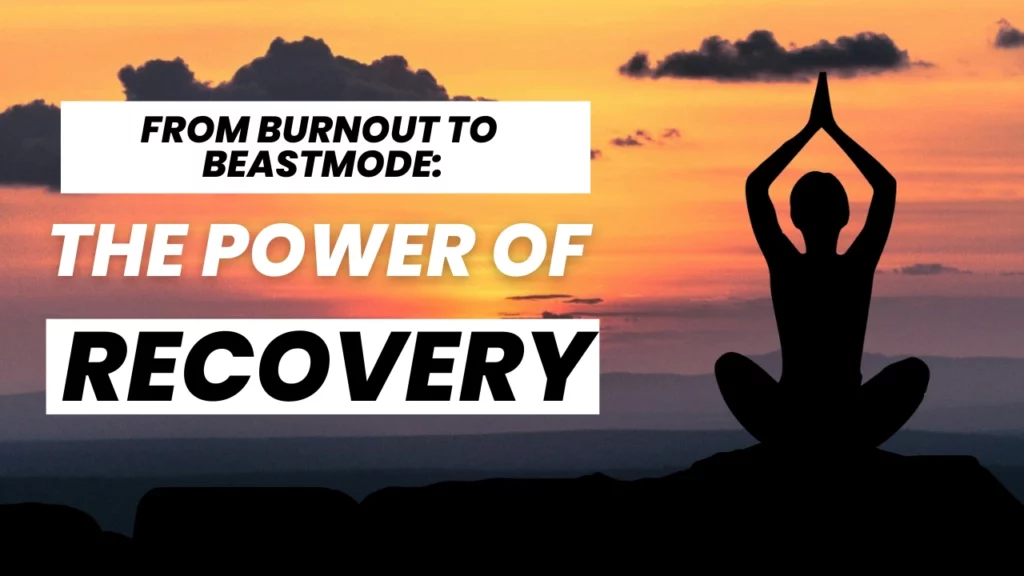
That post Murph recovery struggle is real! As CrossFitters, we’re known for pushing our limits and constantly striving to improve our physical fitness. We push ourselves through grueling workouts, lift heavy objects, and always seem to push our bodies to the limit. While all of this hard work is necessary for progress and improvement, it’s equally important to prioritize recovery in our fitness journey. Losing sight of the importance of rest and recovery can be easy when it feels like there’s always pressure to perform. Let’s take about why prioritizing your rest should be a part of your fitness plan:
One of the most important aspects of recovery is sleep. Sleep is critical for physical and mental health, and it’s essential for muscle recovery and growth. During sleep, our bodies repair damaged muscle tissue, build new muscle, and release hormones that support muscle growth and repair. Lack of sleep can lead to decreased muscle growth, increased risk of injury, and decreased athletic performance.
To maximize the benefits of sleep for recovery, aim for 7-9 hours of sleep per night. Create a consistent sleep routine by going to bed and waking up at the same time each day. Avoid screens and other stimulating activities before bed, and create a relaxing sleep environment by keeping the room cool, dark, and quiet.
In addition to getting enough sleep, taking rest days is essential for recovery in CrossFit. Rest days allow the body to recover and repair from the stress of exercise. Without adequate rest, the body can become overtrained, leading to decreased performance, increased risk of injury, and burnout.
Rest days don’t have to be completely sedentary, however. Active recovery, such as light yoga or stretching, can help improve blood flow and reduce muscle soreness. Rest days can also include low-intensity activities like walking or swimming, which can help improve cardiovascular health and promote active recovery.
If you’re not sure how many rest days to take, listen to your body. Pay attention to signs of fatigue, soreness, and decreased performance, and take a rest day if needed. Don’t be afraid to adjust your training schedule as needed to prioritize recovery and prevent overtraining.
It’s important to recognize the signs of overtraining and take steps to prevent it. Overtraining can occur when the body is not given enough time to recover between workouts, leading to fatigue, decreased performance, and increased risk of injury.
Some signs of overtraining include:
- Decreased performance
- Increased muscle soreness
- Fatigue
- Insomnia
- Mood changes
- Decreased appetite
- Increased risk of injury
To prevent overtraining, it’s important to create a balanced training program that includes adequate rest and recovery time. Make sure to vary your workouts and incorporate different movements and exercises to prevent repetitive strain injuries. Pay attention to your body and adjust your training program as needed to prioritize recovery and prevent overtraining.
In addition to sleep, rest days, and preventing overtraining, there are other recovery strategies that can help support your fitness journey.
These include:
- Nutrition: Proper nutrition is essential for recovery and fueling your workouts. Make sure to eat a balanced diet that includes plenty of protein, healthy fats, and complex carbohydrates to support muscle growth and repair.
- Hydration: Staying hydrated is critical for recovery and overall health. Aim to drink at least 8-10 glasses of water per day, and more if you’re sweating heavily during workouts.
- Mobility: Incorporating mobility exercises like stretching, foam rolling, and yoga can help improve flexibility, reduce muscle soreness, and improve overall mobility and range of motion.
- Recovery tools: There are a variety of recovery tools available that can help support your recovery, including foam rollers, massage balls, and compression garments. Experiment with different recovery tools to find what works best for you.
By prioritizing recovery and listening to your body, you’ll be able to push yourself to new heights in your CrossFit journey. So take the time to recover and rejuvenate, and you’ll be amazed at the progress you can make.